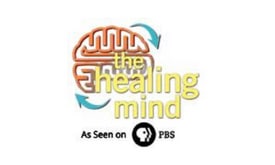Managing your sleep
We see two types of actions you can take to get adequate sleep, depending on the cause.
The first is to promote better sleep if you are in bed but not able to sleep. Please see our Sleep Disruption handbook for advice about ways to promote better sleep:
- Self-carelifestyle actions and behaviors that may impact cancer outcomes; examples include eating health-promoting foods, limiting alcohol, increasing physical activity, and managing stress practices
- Managing your sleep environment to promote sleep
- Complementaryin cancer care, complementary care involves the use of therapies intended to enhance or add to standard conventional treatments; examples include supplements, mind-body approaches such as yoga or psychosocial therapy, and acupuncture therapies
The second action is to sleep at least seven hours every day. We discuss this here.
Managing your available time for sleep
Simply adjusting the timing of your bedtime may improve your sleep duration.
Example: Going to bed before midnight was associated with longer sleep duration among people with ovarian cancer in the first six months following treatment in a large observational study.1Crane TE, Skiba MB, Donzella S, Thomson CA, Parthasarathy S. 0414 chronotype and sleep among ovarian cancer survivors participating in a lifestyle intervention. Sleep. 2020 April;43(Supplement_1):A158–A159.
Sometimes, such as when caring for a newborn or a sick loved one, you may not have much control over your sleep schedule. Or perhaps your job requires you to work at night or be on call. But for most of us, we have reasonable control over when we climb into bed. If you find that you are not able to get into bed regularly at least seven hours before you need to wake up, ask yourself these questions:
- What is keeping me up? Is it more important to me than a good night’s sleep?
- Am I spending too much of my time working? How can I adjust my work schedule?
- Am I spending too much of my time doing chores such as housecleaning, yard work, laundry, cooking, shopping, and such? What can I let go of or cut back on? What can I get help with? What can I do to increase chore efficiency?
- Am I spending too much of my time in recreational activities, whether screen time, hobbies, socializing, or something else? What can I cut back on without impairing my quality of life?
- Am I spending too much time helping others, to my own detriment? What can I say No to?
- Do I delay my bedtime for some other reason? What is it? What can I do to give myself seven to eight uninterrupted hours of sleep every day?
You may not have control over all your time, but you might be able to choose how to allocate an hour or two of your time each day. If you’re ready to make adjustments to give yourself more sleep time, set specific but realistic goals. Track your progress, and celebrate your successes. Over time, you can adjust your sleep patterns.
Managing side effects and symptoms that interfere with sleep
Are cancer symptoms or treatment side effects keeping you from sleeping seven to eight hours every day? See these handbooks for information about managing these side effects and symptoms to regain your sleep and quality of life.
Many more handbooks are being created.
Assessing excess sleep
If you’re getting eight hours of sleep at night but still feel tired when you wake up, your body may be telling you something is out of balance. While sleeping nine hours a night is not unhealthy by itself, it may be a marker of diabetes, hormone imbalances, sleep apnea, depression, or other medical conditions. Finding and addressing underlying conditions may be an important step in improving your overall health and well-being. Some questions to ask yourself:
- Do I need to talk to my doctor about my sleep?
- What might be out of balance in my life that is behind my need for more sleep?
How Sleeping Well relates to other practices and lifestyle choices
Eating Well
Some foods or eating practices are linked to higher risk of insomnia:
- Energy drinks (good evidence)
- Eating late in the evening or at night (preliminary evidence)
Some foods are linked to lower risk of insomnia:
- Better sleep quality among people eating a diet rich in fruit, vegetables, whole grains, and foods high in omega-3 fatty acids (preliminary evidence)
Bedtime may also be linked to diet quality:
- Lower quality of diet among people with ovarian cancer going to bed after midnight, which is linked to less sleep (weak evidence)
Moving More
Substantial evidence links exercise to better sleep, even during cancer treatment
Managing Stress
Stress and sleep are closely connected, with evidence showing that the link can work both ways:
- Poorer sleep quality among people with symptoms of stress (good evidence)
- Higher levels of stress among people with lung cancer with poor sleep quality (preliminary evidence)
Helpful links

Physician, author and guided imagery pioneer Marty Rossman, MD, explains the science and psychology of getting to sleep.
Keep reading
Sleeping Well
More Healing Practices
Learn more
References



